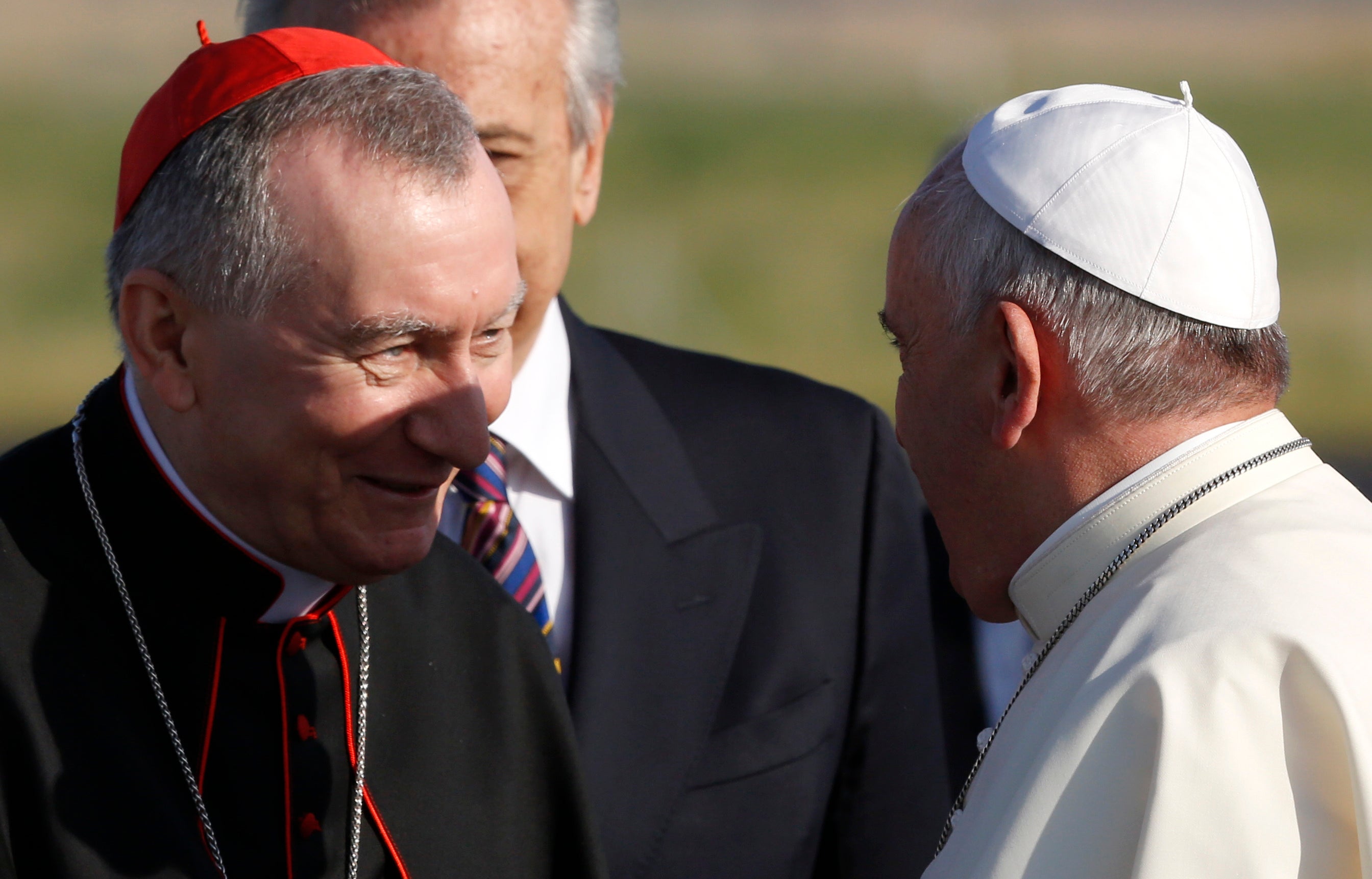Vatican diplomats seek to defuse pope's kerfuffle over Ukraine 'white flag' comments
The Vatican secretary of state is trying to defuse Pope Francis’ latest diplomatic kerfuffle

Your support helps us to tell the story
From reproductive rights to climate change to Big Tech, The Independent is on the ground when the story is developing. Whether it's investigating the financials of Elon Musk's pro-Trump PAC or producing our latest documentary, 'The A Word', which shines a light on the American women fighting for reproductive rights, we know how important it is to parse out the facts from the messaging.
At such a critical moment in US history, we need reporters on the ground. Your donation allows us to keep sending journalists to speak to both sides of the story.
The Independent is trusted by Americans across the entire political spectrum. And unlike many other quality news outlets, we choose not to lock Americans out of our reporting and analysis with paywalls. We believe quality journalism should be available to everyone, paid for by those who can afford it.
Your support makes all the difference.The Vatican secretary of state is trying to defuse Pope Francis' latest diplomatic kerfuffle, insisting in media interviews that a primary condition for negotiations to end the war in Ukraine is an end to Russia’s aggression and that any peace must be a “just peace.”
Cardinal Pietro Parolin, the Vatican’s chief diplomat, made the rounds with friendly Italian media the same day Kyiv summoned the Holy See ambassador to complain about Francis’ comments that Ukraine should have the “courage of the white flag” to negotiate an end to the war.
Francis’ remarks to Swiss broadcaster RSI, recorded in early February but only aired on Saturday, elicited immediate criticism from Ukraine and its allies, even after the Vatican press office tried to redirect attention to Francis’ other remarks in the interview that “negotiation is never a surrender.”
The ruckus once again put the Vatican’s diplomatic corps in the position of having to smooth over Francis’ informal, off-the-cuff way of speaking, providing a more articulated position in line with the Holy See’s tradition of calibrated diplomatic neutrality.
In an interview with leading Corriere della Sera published Tuesday, Parolin noted that Francis in another speech last month had called for a diplomatic solution in Ukraine and the search for a just and lasting peace.
“In that sense, it’s obvious that the creation of such conditions aren’t just for one side, but both sides, and the first condition would be that of putting an end to the aggression,” Parolin said in comments that also were reported by the Vatican’s in-house Vatican News portal.
Parolin noted that Francis’ “white flag” comments were in response to a question that used the term, and that the pontiff subsequently insisted that “negotiation is never a surrender.”
The cardinal made similar comments to Italy's state-run RAI, saying: "Peace in Ukraine will have to be a just peace. It means recognizing mutual rights and also mutual duties, above all, taking into account the dignity of people.”
It’s not the first time Francis’ sometimes imprecise way of speaking, which is often appreciated in other contexts because of its simplicity, have created a diplomatic headache for the Holy See and angered one or the other side in the war.
He has repeatedly expressed solidarity with the “martyred” Ukrainian people but refused to call out Russia or President Vladimir Putin by name. He has seemingly expressed understanding for the invasion Putin ordered by saying NATO was “barking at Russia’s door” by expanding east, but then earned a formal protest from Moscow when he blamed most of the cruelty on Chechens and other minorities.
In September, Francis again courted the displeasure of Ukrainians, including its Greek Catholic bishops, when he praised Russia’s imperial past during a meeting with Russian youths. After Ukrainians voiced their sense of betrayal, Francis later acknowledged his words were “perhaps not happy” and that he in no way meant to justify Russia’s invasion.
___
Follow AP’s coverage of the war in Ukraine at https://apnews.com/hub/russia-ukraine
Subscribe to Independent Premium to bookmark this article
Want to bookmark your favourite articles and stories to read or reference later? Start your Independent Premium subscription today.